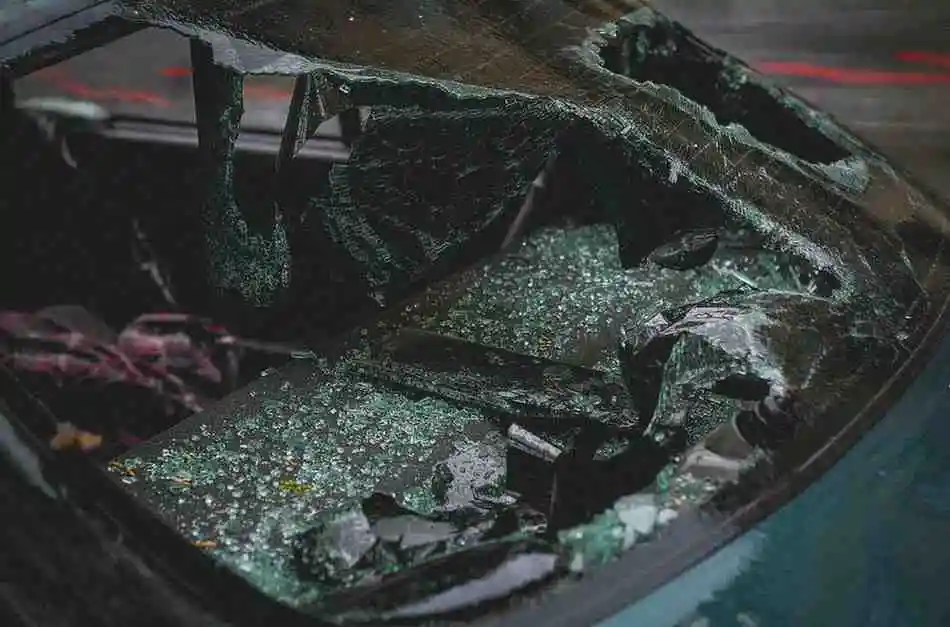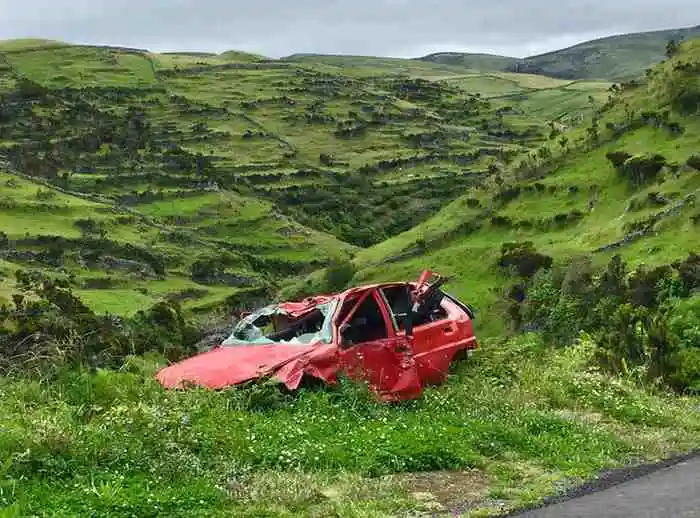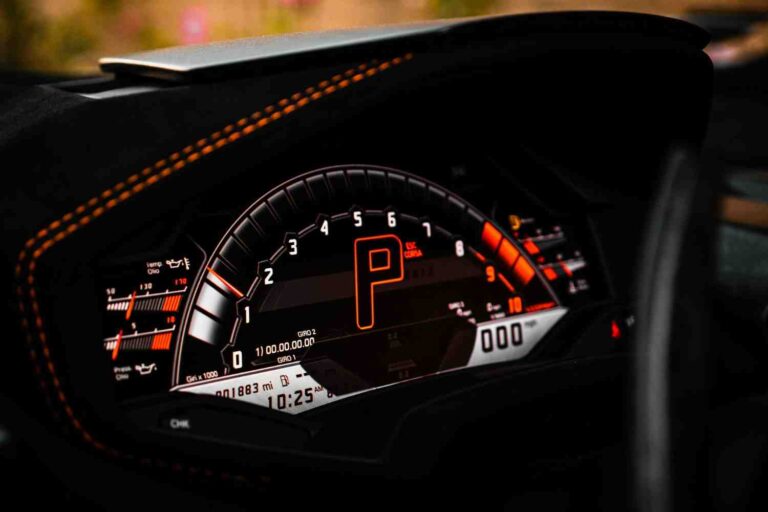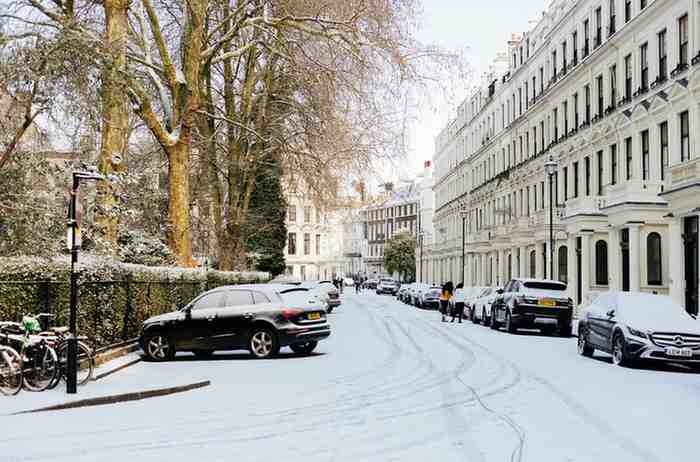Ever thought about if your car insurance covers accidents on private property? This guide will help you understand car insurance for private property accidents.
We’ll cover liability, collision, and comprehensive coverage, as well as what’s not covered. Knowing this can help protect you and your car.

Key Takeaways
- Car insurance policies usually cover accidents on private property, but the amount of coverage can differ.
- Liability coverage is often good for private property accidents, but collision and comprehensive might have limits.
- It’s key to know your policy’s details and state laws to figure out your coverage for private property accidents.
- It’s important to document the accident and follow the right steps when making a claim for a private property accident.
- Thinking about extra insurance, like umbrella policies, can give you more protection for private property accidents.
Understanding Car Insurance Coverage
Before we dive into the details of private property accidents, it’s crucial to have a solid understanding of the core components of a comprehensive auto insurance policy.
Three key coverage types are liability, collision, and comprehensive.
Liability vs. Collision Coverage
Liability coverage protects you in the event that you are held legally liable for harm or property damage to third parties. This means that if you’re at fault in an accident, your liability coverage will pay for the other party’s medical expenses and property damage.
On the other hand, collision coverage pays for repairs to your own vehicle if you collide with another car or object, regardless of who is at fault.
Comprehensive Coverage Explained
Comprehensive coverage, as the name suggests, protects you from a wide range of non-collision incidents, such as theft, vandalism, or natural disasters.
This type of coverage can be particularly valuable if you live in an area prone to extreme weather events or if your vehicle is parked in an urban setting where there is a greater chance of theft or vandalism.
| Coverage Type | What It Covers |
|---|---|
| Liability Coverage | Damages or injuries to others if you’re at fault in an accident |
| Collision Coverage | Repairs to your vehicle if you collide with another car or object |
| Comprehensive Coverage | Non-collision incidents like theft, vandalism, or natural disasters |
“The first step in making sure you have the protection you require, wherever you drive, is to comprehend the various forms of coverage included in your vehicle insurance policy.”

Does Car Insurance Cover Accidents on Private Property?
Car insurance coverage for accidents on private property varies. It depends on your policy and the accident details. Some policies might cover certain types of accidents on private land, but others might not.
Your liability coverage usually protects you if you damage someone else’s property on private land. This includes hitting a fence or a parked car. Your insurance will likely cover the damages you caused.
However, collision and comprehensive coverages might have limits for private property accidents. Collision coverage often applies to accidents with other vehicles or objects.
But it might not cover incidents on private land, like hitting a garage door. Comprehensive coverage, which covers theft or weather damage, might also have restrictions for private property incidents.
| Coverage Type | Applies to Private Property Accidents? |
|---|---|
| Liability | Yes, typically covers damage or injury to others’ property |
| Collision | Depends on policy, may have restrictions for incidents on private land |
| Comprehensive | Depends on policy, may have restrictions for incidents on private land |
It’s crucial to check your car insurance policy for private property accident coverage. Talking to your insurance provider can help. They can ensure you have the right protection for accidents on private land.
Also read: My Car Caught On Fire. Will my Insurance Cover It?
When Car Insurance Covers Private Property Accidents
Permissive Use and Liability Coverage
Your car insurance policy’s liability coverage can help in private property accidents. But, it only works if the property owner has given you permission to be there. This permission is called “permissive use.”
With permission, your liability coverage will help pay for damages or injuries you cause. The main thing is getting the property owner’s okay to be on their land. If you have permission, your insurance will likely cover any accidents.
But, if you’re on the property without permission, your insurance might not help. Always check your insurance policy to know what’s covered in private property accidents. Some policies might have rules that affect your protection.
Exceptions and Limitations for Private Property Coverage
Car insurance is very important for drivers. But, it’s key to know it has limits for private property accidents. Your collision or comprehensive coverage might not cover accidents on private land. This is because these coverages are mainly for accidents on public roads.
Also, if you’re racing or driving recklessly on private land, your insurance might not help. Insurers usually don’t cover intentional or risky actions that could lead to accidents.
It’s vital to read your insurance policy carefully. You need to know what’s not covered for private property accidents. This way, you can find any missing coverage and make sure you’re well-protected, whether you’re driving on public roads or private land.
Factors Affecting Coverage for Private Property Accidents
Car insurance coverage for private property accidents depends on several factors. Knowing your policy terms and state laws is key. This helps you understand your protection in such situations.
Insurance Policy Terms and Conditions
There may be provisions about private property accidents in your auto insurance policy. Accidents on private property, such as a neighbor’s driveway, may not be covered by certain plans. To find out what is and is not covered, always review your policy.
State Laws and Regulations
Car insurance laws vary by state. Some states have strict rules for liability and coverage on private property. Knowing these laws helps you understand what’s covered for you.
Understanding these factors helps you choose the right car insurance. This way, you’re protected in case of accidents on private property.
Filing a Claim for a Private Property Accident
If you’ve been in an accident on private property and think your car insurance covers it, you should file a claim. You’ll need to collect and send detailed documents and evidence to support your claim.
Documentation and Evidence Required
To file a successful insurance claim for a private property accident, you’ll need to provide your insurance company with a variety of documentation and evidence. This may include:
| Documentation | Evidence |
|---|---|
| A police report, if one was filed contact information for the property owner your insurance policy details repair estimates or invoices | Photographs of the accident scene and any damage to your vehicle witness statements, if available any other documentation that supports your claim |
The more detailed and comprehensive the documentation and evidence you can provide, the stronger your filing insurance claim for the private property accident will be.
This can help ensure your claim is processed efficiently and that you receive the coverage you’re entitled to under your policy.
“Having the right documentation and evidence can make all the difference when filing an insurance claim for a private property accident.”
By taking the time to gather and submit the necessary information, you can increase the chances of your claim being approved and receiving the compensation you need to repair the damage to your vehicle.
Minimizing the Risk of Private Property Accidents
Understanding car insurance for private property accidents is crucial. As a driver, it’s important to take steps to avoid accidents. This ensures you’re well-protected.
Always get permission from the property owner before driving on private land. Driving without consent can lead to legal trouble and affect your insurance.
Also, drive carefully, even in non-public areas. Stick to speed limits and watch out for hazards.
Managing risks is vital for avoiding accidents on private property. Make sure your car is in good condition by checking it frequently. Good brakes, tires, and safety features help prevent accidents.
| Action | Benefit |
|---|---|
| Obtain property owner’s permission | Ensures coverage and avoids legal issues |
| Drive safely and responsibly | Reduces the risk of private property accidents |
| Regularly maintain your vehicle | Enhances safety and prevents mechanical failures |
By taking these steps, you can greatly reduce the risk of accidents on private property. A bit of caution and careful driving can protect you, your vehicle, and the property you visit.
“Just as much caution and attention must be used when driving on private property as on public roads.”. Negligence can have serious consequences, both legally and financially.”
Protecting Yourself: Additional Insurance Options
Your car insurance might cover some private property accidents. But, it’s smart to look into more options for protection. A personal umbrella policy can give you extra liability protection beyond your car insurance limits.
A personal umbrella policy is an extra insurance plan. It kicks in when your car insurance is used up. It offers liability protection for private property accidents. This helps protect you from expensive legal fights and financial losses.
Umbrella policies are great if you have valuable things or make a lot of money. They help keep your money safe in case of a big claim. You can start with $1 million in coverage and increase it as needed. This way, you get additional insurance coverage that fits your needs.
| Coverage Type | Typical Limits | Benefits |
|---|---|---|
| Personal Umbrella Policy | $1 million to $5 million | Provides extra liability protection beyond your car insurance limits |
Adding an umbrella policy to your car insurance gives you peace of mind. You’ll know you’re well-protected financially and asset-wise in case of an accident. This extra coverage is a smart investment for your financial future.
Conclusion
Exploring car insurance for accidents on private property can be complex. It’s important to understand the different types of coverage and the exceptions. It can also be beneficial to know how to submit a claim.
Car insurance for private property accidents varies by policy and state laws. Liability coverage might offer some protection. But, it’s crucial to review your policy and consider extra insurance options for full coverage.
Driving safely is the best way to avoid accidents on private property. But, if an accident happens, knowing your coverage can offer peace of mind. Stay alert, know your policy well, and think about extra coverage to protect yourself and your car.
Learn more: Does auto insurance cover private property?
FAQ
Does car insurance cover accidents on private property?
Car insurance coverage for accidents on private property varies. Your liability coverage might protect you if you have permission to be there. But, collision and comprehensive coverage might have limits.
What types of car insurance coverage are relevant for private property accidents?
For private property accidents, consider liability, collision, and comprehensive coverages. Liability helps if you’re at fault for damages or injuries.
Collision covers repairs if you hit something. Comprehensive protects against theft, vandalism, or natural disasters.
Are there exceptions or limitations to car insurance coverage for private property accidents?
Yes, there are exceptions and limits for private property accidents. Collision or comprehensive might not cover accidents on private land. Also, reckless driving on private property might not be covered.
How do the terms of my insurance policy and state laws affect coverage for private property accidents?
Your car insurance policy and state laws impact private property accident coverage. Some policies exclude private property, while states have their own rules. These can affect liability and coverage.
What steps do I need to take to file a claim for a private property accident?
To file a claim for a private property accident, start with your insurance provider. You’ll need to provide evidence like photos of the damage and the property owner’s contact info. Also, include any police reports or witness statements.
How can I minimize the risk of private property accidents?
To avoid private property accidents, drive carefully and responsibly. Always get permission to be on private land. And, drive safely, even in non-public areas.
What additional insurance options can I consider for private property accidents?
Besides your car insurance, think about extra coverage. A personal umbrella policy can offer more liability protection than your car insurance.




[…] Read about: Does Car Insurance Cover Accidents On Private Property? […]
[…] More info on this in my article: Does insurance cover accidents on private property? […]
[…] You can also compare how policies treat unusual situations. For example, does the policy cover damage on private property? If not, you might want to read this important guide. […]
[…] you’re unsure how different claim situations affect coverage, you can check my post on accidents on private property. It’s a common gray area that confuses many […]